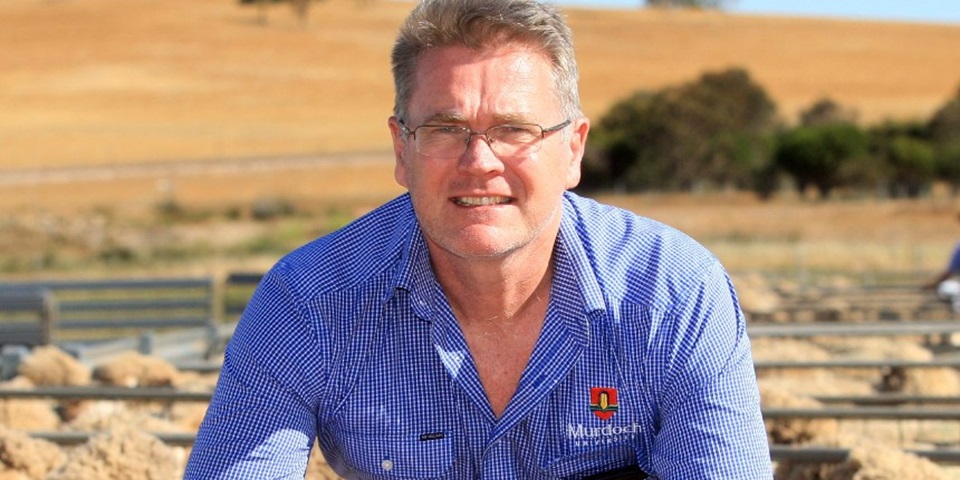News
An outstanding career recognised

Associate Professor Andrew Thompson has an enduring commitment to the Australian sheep industry, delivering research outcomes with real and significant impacts on farming families.
Sheep production is one of the largest agricultural industries in Australia, and for more than 30-years Dr Andrew Thompson has focussed on developing research outcomes to help solve some of the most important issues facing our farmers.
His contributions to the sheep industry were recently honoured at the 2020 Southern Australia Livestock Research Council (SALRC) Awards. The awards recognise innovation and excellence in Australian livestock industries, rewarding individuals who have helped to improve profitability, productivity and sustainability in their field.
For Dr Thompson, the award is certainly well-earned.
In his early career, Dr Thompson’s research helped introduce the concept of Feed on Offer (FOO) to farmers – the amount of pasture in a paddock at any given time, measured in kilograms of dry matter per hectare, and how it relates to pasture and sheep production. His early work also focussed on managing sheep nutrition to manipulate the fibre diameter or fineness of wool and improve its strength.
These concepts are now embedded in everyday advice and management of sheep across Australia.
One of Dr Thompson’s most notable achievements was leading the National Lifetimewool project and subsequent co-development of the Lifetime Ewe Management (LTEM) training program. Since 2006, LTEM has been delivered to over 4000 sheep producers, managing more than 12 million ewes (30 per cent of the national flock). Evaluation data shows that the participants in LTEM increased their stocking rate by nearly 10 per cent, improved the number of lambs weaned per ewe by 7 per cent and reduced ewe mortality. It was recently estimated that the gains in lamb production alone due to participation in LTEM has so far delivered about $300 million back to growers.
His other research interests include reproduction in ewe lambs, developing more ‘easy-care’ sheep that require less labour, understanding the roles of feed intake and whole-body energy reserves on potential stocking rates, and developing sensor technologies to monitor sheep behaviours, welfare and production in real-time.
Dr Thompson said he had been extremely fortunate to lead research groups at the former Pastoral and Veterinary Institute in south west Victoria and at Murdoch University since 2011.
I love what I do and a big part of this comes from working with motivated and passionate staff who want to make a difference.”
At Murdoch, a number of projects are currently being developed and managed by early and mid-career scientists in Dr Thompson’s research group. These projects include understanding the magnitude and causes of foetal losses in young ewes, supplementation with vitamins and minerals to improve lamb survival, understanding the effects of different methods of providing supplementary feed on ewe behaviour and lamb survival and reducing mortality of triplet bearing ewes and their lambs.
Underpinning a large portion of the research conducted by the research group is whole-farm economic modelling. This process increases the likelihood that the research outcomes will have a major impact on farming systems.
Receiving his award, Dr Thompson said collaboration was the key to delivering impact.
“Collaboration has always been a key to success and few, if any, research groups involved in on-farm research and development collaborate like we do,” Dr Thompson said.
“Eight of 10 projects currently led by our group at Murdoch involve other scientists and consultants in SALRC regions, and current and recent projects have involved more than 200 sites on commercial farms throughout Australia”.
Successful collaboration is so rewarding, especially working directly with farmers.”Learn more about research of the Centre for Animal Production and Health.